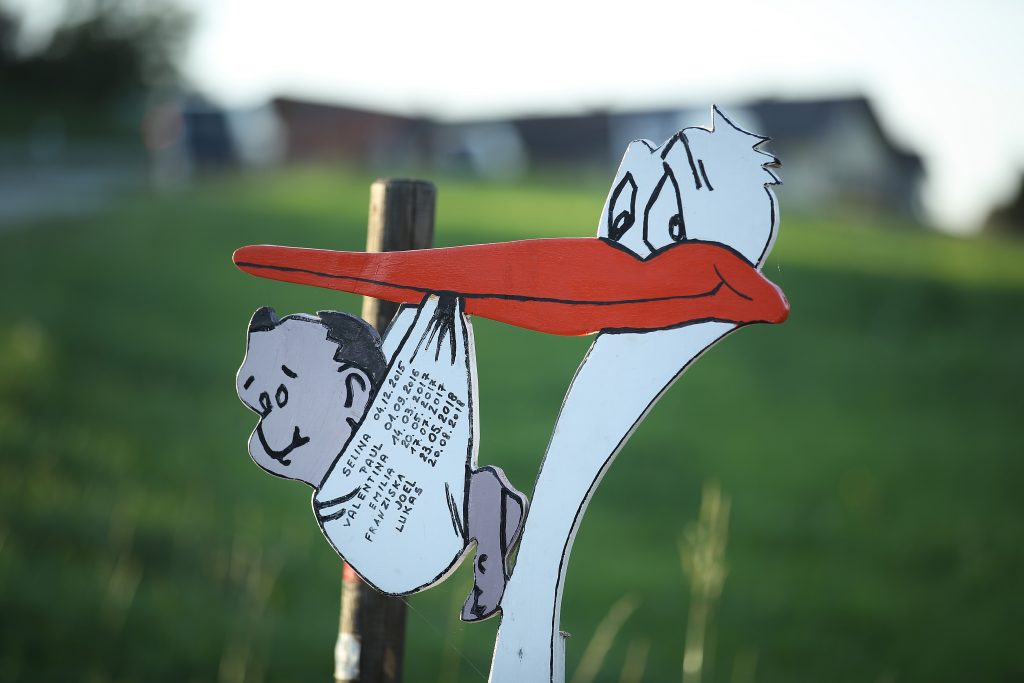There’s a charming old Spanish saying that I don’t hear very often nowadays: “No hay quinto malo.”
The translation to English sounds a bit awkward: “There are no bad fifths.” It is used to cheer up a man who has just announced, stunned and pale, that his wife is expecting their fifth child (sometimes followed by another helpful adage about a baby always arriving with a loaf of bread under its arm).
The friends prop the father up as he contemplates the mounting cost of shoes and schooling. The child’s arrival may be felt as a shock, they tell him, but it won’t be long before he or she becomes an essential part of the family’s happiness.
These days, this pretty scenario is becoming increasingly rare in the West. Statistics show that we have collectively abandoned the joys of sons and daughters, even in America. In 2020, the U.S. fertility rate was an anemic 1.7 births per woman, joining rapidly aging countries like Singapore and Spain.
For decades we have heard about the danger of unchecked population growth accompanied by calls to limit the size of our families, or to give up reproducing altogether for the sake of the planet.
But now we are finding that the clouds gathering on the horizon are those of the “demographic winter” that Pope Francis frequently warns about.
A scarcity of births means the elderly will greatly outnumber the working young: meagerly staffed nursing homes overflowing with warehoused elders; the leaden loneliness of only children becoming the norm rather than an exception; a society that is no longer motivated by the vulnerable innocence of children to be decent and safeguarding. If almost everyone is a childless adult, “family-friendly” environments will become anachronisms.
Women working outside the home, increasing access to contraception and the rising cost of living may explain what is happening at its most basic level. But our lack of interest in children is a symptom of something deeper: our enthusiastic embrace of liberalism, dating back to the Enlightenment.
We have had five centuries or so to marinate in the philosophy that the most important element in human flourishing is individual liberty. Whether we consider ourselves conservative or liberal in our politics, we have imbibed the idea that our happiness is bound up in our autonomy and our ability to direct our own destinies.
The things that tie us down, like family duties, religion, tradition, and even anthropological realities, are more and more regarded as obstacles to personal freedom — even sources of oppression.
How could we expect childbearing — effectively disconnected from love and marriage by widespread contraception and legal abortion — to survive in an age that worships personal freedom?
You don’t have to be the mother of five children (like me) to understand that there is nothing less conducive to personal autonomy and individual liberty than parenting. I can attest: The moment that delicate newborn is first placed in your arms, selfish thoughts are replaced by the urgent calls of duty, responsibility, devotion, and self-sacrifice. Our ability and desire to write our own destiny unhampered go out the window when motherhood or fatherhood come through the door.
But there is a deeper reward that lavishly makes up for our loss of autonomy: the noble satisfaction, the deep contentment, of fulfilling the sweetest duty imaginable. Parenthood even leads to the discovery of true liberty in its ancient and Christian conception: the condition of self-governance. As St. Pope John Paul II was known for saying, freedom “consists not in doing what we like, but in having the right to do what we ought.”
There is a global tragedy in the making here. A tragedy of too many people settling for a beige existence of individual freedom and missing out on a lifetime of colorful joy, as well as an economic and social tragedy. We must change course, but the practicalities of modern life make it increasingly difficult.
It has become a social norm to delay marriage or avoid it altogether. The practice of avoiding pregnancy has become a defining component of women’s health care, as though pregnancy were a disease. The cost of higher education has been allowed to balloon, while its quality has dropped. And expectations of the material advantages we need to give each child are sky-high. We have come to accept the absolute necessity of women in the workforce, with child care a lower priority.
But these obstacles are all details. We will have to go to the philosophical source of the problem.
We must acknowledge that the exhilarating shaking off of our bonds and fetters has freed us only for a lonely, frigid future. The idol of personal liberty, so promising and enticing, has finally failed us on a massive scale. It is time to replace it with a humbler, nobler kind of liberty.

